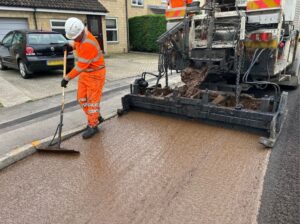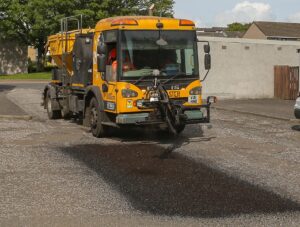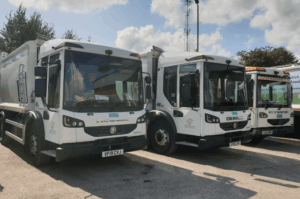The AA has said pothole repairs should focus on rural and residential roads as local councils face road repairs financial blackhole
The organisation said a ‘widescale resurfacing of crumbling streets’ is needed. Last week, the Local Government Association said council highways budgets had been reduced by £400 million-which could have fixed nearly 10 million more potholes.
The AA has said that for the safety of road users, and in particular cyclists, money must be diverted to fix more than just main routes.
The LGA has asked government to plug the £400 million gap – while also committing to an additional £500 million per year for road repairs.
Jack Cousens, head of policy for the AA, is concerned there has been more focus on main roads in recent years and attention needs to shift towards damage on rural and residential streets, which he says, among other problems, puts those travelling on two wheels in ‘great personal danger,’ reports Kent Online.
The motoring organisation says the last 18 months of lockdowns and more cars parked in residential streets as a result, has had a major impact on resurfacing works in smaller streets and the problem must now be addressed.
He said :“Emergency road-repair funds of recent years have been targeted at main roads rather than residential and rural ones. These are the ones that vulnerable road users, such as cyclists, use the most. Pandemic lockdowns and cars parked outside homes got in the way of resurfacing schedules, but now it’s time to catch up.
“As the Government urges local authorities to ‘Build Back Better’, this should be the launchpad for a widescale resurfacing of crumbling streets.”
Paul Boss, Chief Executive of the Road Surface Treatments Association (RSTA) said: “Whilst I would endorse additional maintenance funding being put into residential and rural roads, local authority comprehensive asset management plans should focus on the whole of the highway network, ensuring the right treatments are delivered at the right time to maximise efficiency and ensure the greatest use of sustainable treatments. Kent is great example of where the authority has utilised sustainable preventative surface treatments to maintain as many of their roads as possible in good condition. Good lifecycle planning that makes roads last their intended life produces the least amount of carbon and is also the most efficient. It’s a win win situation.
“Even where roads do require maintenance of a structural nature, the use of Insitu recycling before surfacing produces substantially less carbon and is more economical than reconstructing and /or replacing multiple layers of asphalt. Every road maintenance scheme should be carefully assessed to ensure the most efficient and sustainable treatment is designed and meets the objectives of the scheme.”
























